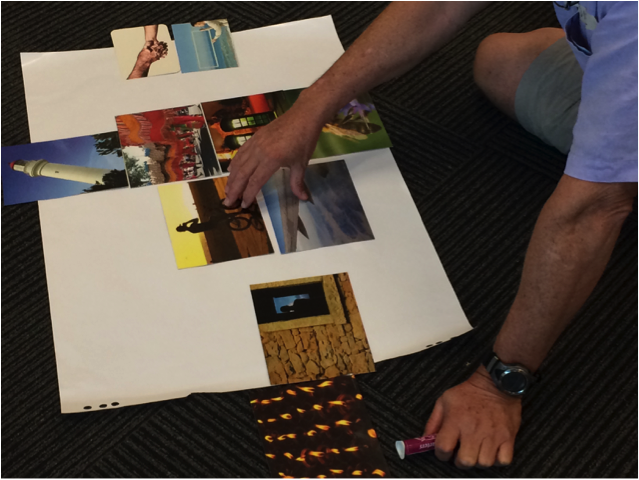Dear Mavericks
In early 2003, while at a conference, I was introduced to an emerging area of work – a new field of practice to me – in which a number of delegates called themselves coaches.
Let me explain the provenance of my coaching.
It was the early 2000’s and I had moved to London. Given my new surrounds and life style I decided it was time to make a career shift. The perfect work opportunity presented itself and I took a position in the business unit at Central Saint Martins College of Art and Design, University of Arts London as the Professional Training Manager (PTM) and Study Abroad Coordinator. The PTM role was new and full of possibility. It presented an assortment of opportunities and challenges, including building networks, relationships and clients, along with the creation of a suite of training/learning programs by collaborating with our highly capable, creative and extensive network of lecturers and external tutors. I was in my element.
As part of my research and development into arts and business I attended an Arts & Business Conference at Castle Borl, Slovenia. This gathering was part of the IDRIART movement (Initiative for the Development of Intercultural and Interdisciplinary Relations through the Arts) an initiative of violinist and cultural ambassador for Slovenia Miha Pogacnik. It was a unique experience and cutting edge in so many ways; from the calibre of people, many of whom I continue to connect with, to the ideas being presented and workshopped.
While the coaches intrigued me it took me a little while to appreciate what they offered and in hindsight I am aware that I may have been a little dismissive. Why would anyone need a coach I kept asking myself, and asking them; even though I understood the benefit of a sports coach, as I had experienced aspects of that in my own life through swimming at school. That conference became a catalyst for me in many ways including undertaking my doctoral degree in Creative Industries, establishing Maverick Minds and eventually developing my coaching practice.
As Maverick Minds has evolved so too has my coaching practice. I have invested in developing my coaching skills through learning, training, coaching, mentoring and supervision. During this time I have coached leaders of organisations, managers, creative practitioners and more recently have become part of a university coaching panel.
The people I coach on a one to one basis have made a choice to engage with me in a coaching relationship. This is a great start as there is personal motivation, which provides a great foundation for getting results. Given my arts and creative industries background I have a particular interest in Coaching for Creativity.
Why is Coaching for Creativity important?

Because creativity lies at the heart of everything we do. When we seek to create change and bring something new and of value into the world we need imagination. Imagination is our springboard into the unknown. From there we need to harness a whole lot of personal capabilities as well as resources.
Sometimes it’s safer to stay doing what we’ve always done. Change requires creativity, courage and commitment. Our lives seem increasingly busy and distracted, we can lose touch with ourselves. Going it alone may not always be the optimum approach. I help my clients clear the cobwebs and get a fresh perspective.
In terms of a coaching conversation what this might sound or look like emerges in different ways. Each coaching conversation is unique. It may take the form of a creative practitioner trying to carve out time for their creative practice, as they hold down a full time job, and look for sustainable ways to do this.It may be an artist wanting to change artistic direction or feeling stuck. It may be a performer or entrepreneur experiencing a crisis in confidence. It may be a small business entrepreneur developing an aspect of their business and needs some external input to move to the next stage.
A manager experiences a challenging situation and decides to explore new ways and options to think about their current situation and how to manage and engage differently with their team. A leader is grappling with the complexity of their organisation and simply needs thinking time to get a different perspective.
A person finds their professional circumstances change they experience excitement and concern – a coaching conversation provides opportunity to reflect and consider their next step.
These are some of the coaching conversations I have had with people.
These moments are catalysts for change and growth and require creativity. While change can be exciting it can be challenging and demanding. Even when we are the ones who have decided it is time to do something new or different.
Coaching is not static – it is a dynamic collaboration between the coach and coachee. I refer to this as The Third Space, the unique space created between the coach and coachee, that becomes a place for learning, creativity and possibility. While there is no single definition for coaching I am taken with researcher and coach Dr Vikke G Brock’s broad definition and encompassing view that coaching is:
“a dynamic and contextual mutual-learning process that fosters self and behavioral awareness, personal growth, and conscious choice for the highest good”.
What does a creative coach do?

Coaches work in a variety of ways and being a unique individual they will have their style and approach. It’s important to find someone you feel a rapport with and can trust. From my perspective the coaching relationship is based on mutual understanding and appreciation that the client has the ability, qualities, and capability to create positive change and identify opportunities to enable that.
My intention is to hold the space for the person I am working with so they are able to explore what is important for them. Coaching is about working holistically and with the specific.
Through the coaching conversation I endeavour to listen deeply, asks curious open questions and clarify my understanding to help my clients focus their attention, identify what is emerging, and take action when needed.
With permission I offer insights or observations and when needed respectfully challenge and stretch my clients. I may offer alternative ways or suggestions for how my client may be able to engage or inquire into their situation. As a creative coach and coaching for creativity I also use innovative inquiry methods to support reflection, inspire insight and make progress. Clients are always in control and make decisions about what path or direction they wish to go.
What are the benefits gained from working with a creative coach?
Individuals, teams, organisations, leaders in large organisations, small business entrepreneurs, social innovators, creative practitioners and people/organisations in transition can all benefit from working with a creative coach. Our lives are increasingly busy, it’s easy to get distracted.
Coaching is especially effective when a person is ready to create change and most people find coaching helps keep them motivated and accountable.
Here’s just a few ways I help clients:
- Discover what is important and focus on a desired future state
- Reflect and develop self-awareness (help you know who you are)
- Identify talent and strengths
- Uncover what is possible
- Keep dreams, aspirations and visions alive
- Identify opportunities
- Develop a creative mindset
- Cultivate a creative workplace culture
- Identify and work realistically with internal and external challenges
- Design meaningful ways to take creative action
- Gain greater confidence in creative abilities, problem solving and decision-making
- Work through resistance, concerns and anxiety
- Stay accountable
- Focus time, attention and energy on the right things
- Bring creative ways of being and doing to professional work
- Shift thinking, find clarity, gain new perspectives and insights
- Manifest and bring to life creative endeavours, business ventures, and projects
- Explore dreams and aspirations openly, curiously, and spaciously
- Maintain motivation and commitment
In 2016 I returned to Slovenia, and the stunning resort town of Lake Bled, to host a stream at the Art of Management and Organization conference. It felt like I had come full circle.
Again I was exposed to emergent ideas between the arts, business and organisational life. This time coaching was not at the forefront, it seemed embedded in conversations and how people may develop professional life. In 2018 I will be returning to the Art of Management and Organization conference in the UK where I will facilitate a pre-conference workshop and use one of my creative coaching processes Body Mapping as a tool for inquiry and reflection.
As we head into Christmas and the New Year it’s a perfect time to consider another yearly chapter and how you can invest in yourself and the people around you. I wonder what you are currently grappling with or what interesting projects you are working where coaching could add value and help you springboard to the next stage.
I offer Individual Coaching Packages via skype, zoom, or phone. You can find more information by clicking this link https://www.maverickminds.com.au/coaching/ or get in touch with me directly if you would like more information or to book a coaching package. I’m available to discuss how coaching can work for you and the people in your business.
Are you making the most of your MOST valuable resource?
Remember ‘if you want to go fast go alone; if you want to go far, go together’.
Yours creatively
Cathryn
Dr Cathryn Lloyd
Founder/Director
Maverick Minds
+61406007753
cathryn@maverickminds.com.au
www.maverickminds.com.au
A little more information if you are interested
Coaching has a Provenance
You may be interested to know that coaching has a history. While it’s not possible to delve deeply in this newsletter it is worth appreciating that coaching has it’s own history and developmental story. Dr Vikki G Brock a researcher and coach has written extensively about the global history of coaching. Coaching has a more nuanced and rich history than most people may know. Brock researches the roots, branches and emergence of coaching which is extensive. She highlights the impact the industrial revolution had on the way people worked, in particular removing people from their support networks, and how globalisation continues in its footsteps. Brock explains “four socioeconomic patterns emerged as directly linked to coaching: complexity of the postmodern society, global consciousness and spiritual paradigms, humanistic worldview of humankind, and the trend toward individualism”.
She reveals how coaching has been influenced by a number of fields such as philosophy, sports, and adult learning which makes it a multidisciplinary practice and as a result claims coaching needs to be inclusive. This way of thinking appeals to me – to think there is only one way to coach seems contrary to the intention and heart of coaching.
As coaching has evolved it has become a key player in terms of personal, professional and organisational learning and development and performance. The coaching world offers a range of courses, qualifications and professional associations. Coaching is employed in areas such as leadership, change, management, business, career development and health. Like anything it may feel a little daunting regarding making the ‘right’ choice in terms of developing your own coaching skills or if you wish to engage a coach. It’s worth making time to do this; from basic desktop research, allowing yourself to get a sense of what is out there, to speaking with someone who has had direct experience with a learning provider or a coach and may be able to refer someone. |